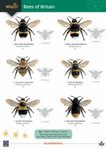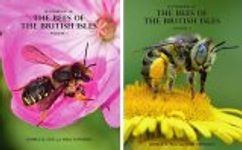"[This book] will be appreciated not only by professional myrmecologists but also by other entomologists and ecologists in general, students, and all trying to understand the amazing natural processes related to this group of social insects."
– M. Suvak, Thaiszia Journal of Botany
"An authoritative and well-rounded book. It ranges widely over the subject and has a nice historical view, as well as being up-to-date, so that everyone can learn from it [...] It is worth buying."
– Mark Young, Bulletin of the British Ecological Society
"An essential compendium of information for anyone in the field of ants, plants, and their interactions. Moreover, it places ant-plant interactions in the larger context of the geographic mosaic of coevolution, and broader ecological theory, and will be a useful text for ecologists generally. Rico-Gray and Oliveira have produced a thorough and well-timed synthesis of an incredibly diverse field."
– Kirsten L. Abbott, Integrative and Comparative Biology
"The broad synthesis and overview that Rico-Gray and Oliveira have provided on this hugely diverse subject, coupled with the comprehensiveness of their literature review, place this book firmly in the 'must-have' category for anyone interested in ants and plants and of great interest for ecologists interested more generally in the ecology and evolution of interspecific interactions."
– Duncan Mackay, Austral Ecology
"The Ecology and Evolution of Ant-Plant Interactions is an essential book for anyone who currently studies ant-plant interactions. It will also serve as required reading for graduate students who are beginning work on topics in this field. More generally, it should appeal to anyone with an interest in the ecology and evolution of mutualism."
– John Mull, Ecology
"This book is a must-read for ant-plant researchers, and should be assigned reading for graduate students on plant-animal interactions. It is the most current and thorough treatment of ant-plant interactions to come along in over a decade."
– Megan E. Frederickson, Ecoscience
"A reader can sense the authors' delight and fascination with the subject on every page of The Ecology and Evolution of Ant-Plant Interactions. The breadth and depth of Rico-Gray and Oliveira's experience and understanding, and the enthusiasm with which these are transmitted to paper, is inspirational. Clearly and authoritatively written, rich with citations, and comprehensive, the book will remain an essential reference for decades."
– Peter W. Price, Regents' Professor Emeritus, Northern Arizona University
"I have been waiting for somebody to write this book! It's a remarkable synthesis of deep and wide-ranging conceptual issues, a feast of natural history, and an up-to-date summary of the field. Given that plants feed the world and ants eat it, churn it, and direct traffic, it is no wonder than ant-plant interactions are so pervasive. Rico-Gray and Oliveira have succeeded in producing a book that will drive the field for at least a decade, and one that will have far-reaching impacts on anybody interested in the nature of how species interact."
– Anurag Agrawal, Cornell University
"Victor Rico-Gray and Paulo Oliveira, both foremost researchers exploring the enormously diverse ant-plant associations, have written an impressive, authoritative monograph on this subject. This is an important book; it provides a timely critical account of a fundamental body of work. The overarching theme is of great interest to ecologists in general and in particular to social insect biologists."
– Bert Hölldobler, Arizona State University





































